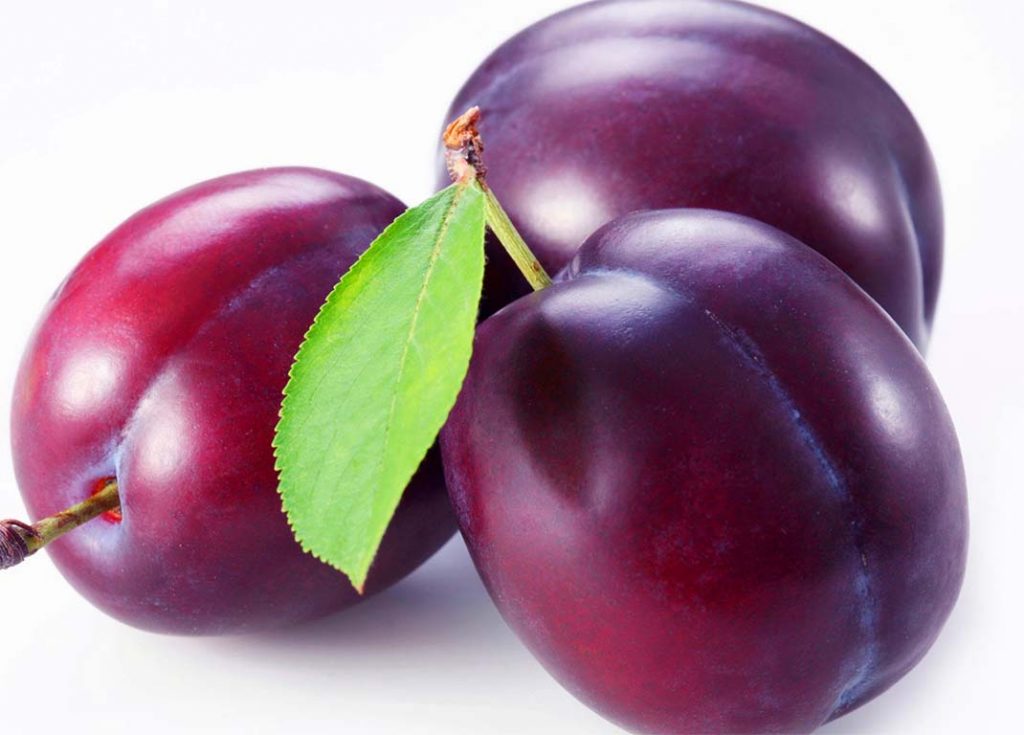
Plums are small, juicy fruits that belong to the Prunus genus of the Rosaceae family. They come in a variety of colors, including red, purple, yellow, and green, and have a sweet and tart flavor. Plums are typically round or oval in shape, with a smooth skin that can be easily peeled. The flesh inside is soft and juicy, with a pit in the center.
Plums are widely cultivated and enjoyed around the world. They are not only tasty but also offer numerous health benefits, as mentioned earlier. Plums can be eaten fresh, added to fruit salads, or used in a variety of culinary preparations, including jams, jellies, pies, and sauces. They can also be dried to make prunes, which have a concentrated sweetness.
When selecting plums, choose ones that are firm, slightly yielding to gentle pressure, and have a vibrant color. Avoid plums with bruises or overly soft spots. They can be stored at room temperature until they ripen, after which they can be refrigerated to prolong their shelf life.
Plums are delicious fruits that offer a range of health benefits. Here are some of the key benefits associated with consuming plums:
Nutrient-rich
Plums are packed with essential nutrients such as vitamins (vitamin C, vitamin K, vitamin A, and various B vitamins), minerals (potassium, manganese, and copper), and dietary fiber. These nutrients contribute to overall health and well-being.
Digestive health
Plums are an excellent source of dietary fiber, which aids in digestion and promotes regular bowel movements. They can help prevent constipation and maintain a healthy digestive system.
Antioxidant properties
Plums are rich in antioxidants, including phenolic compounds, flavonoids, and anthocyanins. These antioxidants help protect the body against free radicals, which can cause cellular damage and contribute to chronic diseases such as cancer, heart disease, and aging-related conditions.
Heart health
The potassium content in plums helps regulate blood pressure and maintain proper heart function. The fiber content can also contribute to reducing cholesterol levels, thus reducing the risk of heart disease.
Bone health
Plums contain vitamin K, which plays a crucial role in bone health and helps improve calcium absorption. Adequate vitamin K intake is associated with a reduced risk of osteoporosis and fractures.
Weight management
Plums are relatively low in calories and high in fiber, making them a satisfying snack that can aid in weight management. The fiber content helps you feel full for longer, reducing the tendency to overeat.
Skin health
The antioxidants found in plums, particularly vitamin C, help protect the skin from oxidative damage caused by sun exposure, pollution, and aging. These antioxidants can contribute to healthier, more radiant skin.
Eye health
Plums contain vitamin A, which is essential for maintaining good vision. It helps protect the eyes from age-related macular degeneration and other eye conditions.
Anti-inflammatory properties
Plums contain various compounds with anti-inflammatory properties, such as anthocyanins. Regular consumption of plums may help reduce inflammation in the body and lower the risk of chronic diseases associated with inflammation.
It’s worth noting that individual results may vary, and it’s important to incorporate a balanced diet and a healthy lifestyle overall to reap the full benefits of any food.
Plum fruit Nutritional Values
Plums are a nutritious fruit that offer a range of vitamins, minerals, and other beneficial compounds. Here is the approximate nutritional value of plums per 100 grams (3.5 ounces):
| Calories: 46 |
| Carbohydrates: 11.4 grams |
| Fiber: 1.4 grams |
| Protein: 0.7 grams |
| Fat: 0.3 grams |
| Vitamin C: 9.5 milligrams (16% of the daily recommended intake) |
| Vitamin K: 6.4 micrograms (8% of the daily recommended intake) |
| Vitamin A: 17 micrograms |
| Potassium: 157 milligrams |
| Calcium: 6 milligrams |
| Magnesium: 7 milligrams |
| Phosphorus: 16 milligrams |
Please note that these values are approximate and can vary slightly depending on the specific variety and ripeness of the plum.
